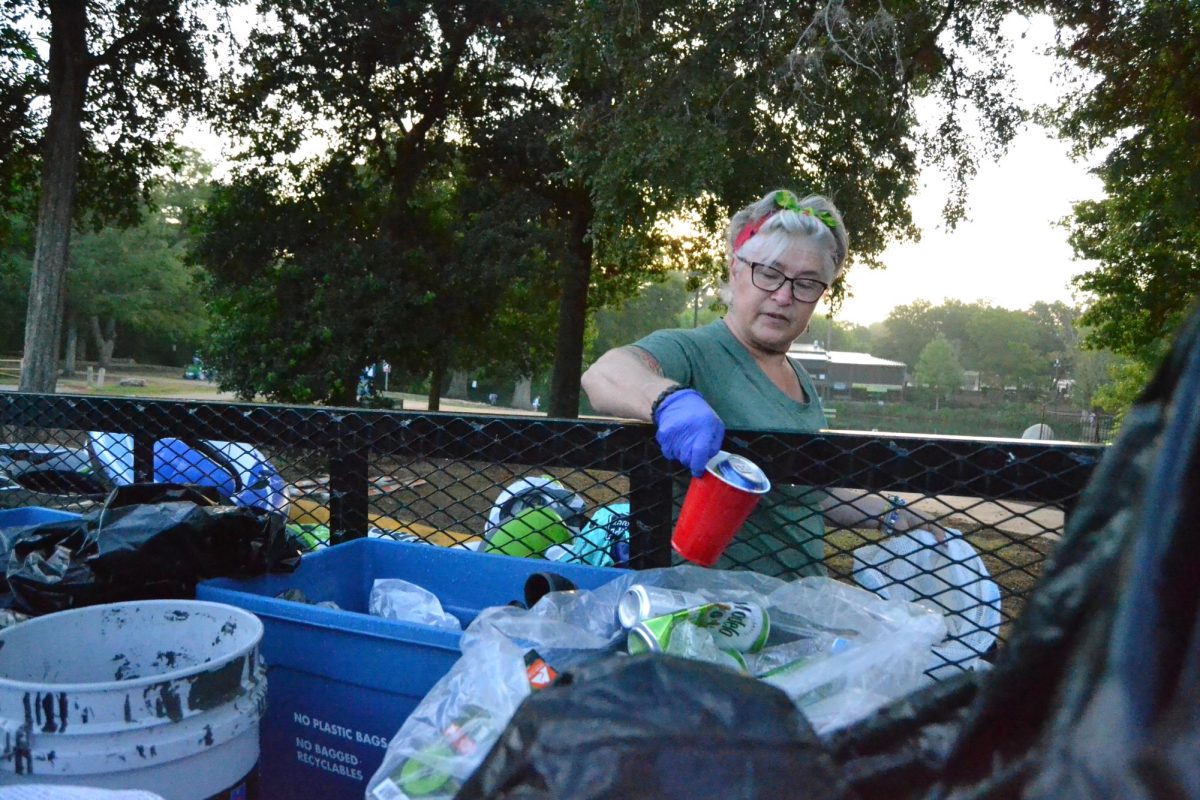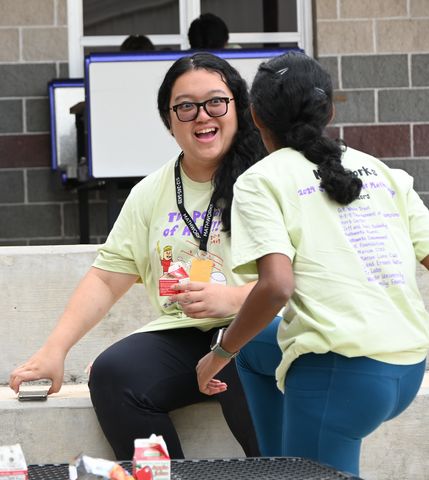From career fields in marketing and accounting to healthcare, female Bobcats are taking the workforce by storm according to results from a Stepping Blocks career survey that shows Texas State is ranked No. 6 for its successful and high-earning female graduates among R2 Southern universities.
Stepping Blocks, a career guidance service known for its data research in education and employment, conducted a survey of women alumni under 40 years old who earn over $100,000 annually. Research and data from online profiles, federal census data and the Bureau of Labor Statistics (BLS) yielded results that were separated by region through a rigorous process of data validation and testing.
According to the Stepping Blocks survey, the top three majors with the highest salaries were marketing, accounting and healthcare.
“I cannot say I was surprised,” said Linda Alkire, associate professor in the Department of Marketing at Texas State. “I always teach my students to never undersell yourself and know your value.”
R2 or research universities are institutions that have high research activity. The Carnegie Classification of Institutions of Higher Education states they are schools that have the best professors and faculty, guiding their students through trailblazing research and beyond.
Data from Univstats shows that the overall female graduation rate for Texas State in 2021 was 58%, compared to the male graduation rate of 49%. The research website that focuses on statistics of college campuses across America gets its research from the U.S. Department of Education, the Integrated Postsecondary Education Data System (IPEDS) as well as self-research.
Ruth B. Welborn, dean of the College of Health Professions at Texas State, said female students make up around 80% of the those pursuing health professions degrees at Texas State.
“Going on to degree completion and into the healthcare workforce supports a high female workforce,” Welborn said.
While nursing is a predominantly female-populated profession, Marla Erbin-Roesemann, associate dean of the College of Health Professions, believes that a diverse nursing workforce is essential.
“We need everybody in our profession,” said Erbin-Roesemann. “We have a diverse population, and thus our health professionals need to reflect our population that we’re going to care for.”
Although there are other Texas universities with well-equipped nursing programs, Erbin-Roesemann knows that it’s the faculty at Texas State that makes a difference by setting students up for success and ensuring they leave college confident and knowledgeable in their craft.
“Our faculty is current and our curriculum is current,” Erbin-Roesemann said. “We hold our students to high standards and help them be the best they can be.”
Alkire agrees that Texas State is unlike any other university regarding faculty. Her colleagues in the McCoy College of Business help give their students a home away from home by continuing to mentor them even after they leave Texas State.
“I believe the quality of teaching is very high,” Alkire said. “We make a point to build connections, get to know our students and help them beyond just studying chapters.”
Not only faculty, but students are the key to their own success. Alkire notices how hardworking the female students at McCoy are, which leads them to become successful leaders after graduation. She hopes they continue to work hard. If they know their worth, she said, they will succeed.
“When you work with students who are really eager to work hard, you try and help them out as much as possible,” Alkire said. “It’s the perseverance, knowledge and hard work these students have that just makes us so proud.
While students are putting the work in for their future careers, there is a glass ceiling that still hangs above women’s heads in the workforce. From receiving little pay compared to the men in their field to not being able to move up to higher positions, women have had and continue to put in more work to get to leadership roles.
“Going back to the 1980s, women made up 50% of the workforce in accounting,” said Ann Watkins, professor and chair of the Department of Accounting. “However, what you didn’t see is women in those partner positions in firms.”
Watkins said that even 20 years later, women had still not made it into those partner positions but she has begun to witness women now being offered leadership roles. She believes it’s important for women to have these higher positions because it will create change in the traditional workforce.
“That’s the key,” Watkins said. “To have women in those leadership roles.”
In addition to the business career field, women in the medical field were also marginalized even though they showed out in numbers. Erbin-Roesemann mentioned the little pay that women nurses were given.
“Nursing used to be considered a profession for young women, where once they get married they leave the profession,” Erbin-Roesemann said. “So they felt that they did not have to pay them very well.”
Erbin-Roesemann explained the change that the field underwent in the 1970s when unions were introduced and changed wages for young women in nursing. Women are now able to support their families and themselves individually.
For marketing, Alkire understands that there is a lot of work that needs to be done in order to break the glass ceiling. She said that women, unfortunately, have to work double to prove their worth and that goes for any career.
“I came from an old town in the middle of nowhere in Lebanon,” Alkire said. “It’s only due to hard work and education that I ended up here at Texas State. I never thought I’d end up in another country”
She said that although she worked very hard to get to where she is today, she acknowledges the younger generation and guides them to achieve their goals.
“Unless the people who make it to the top help the people who are just starting out, we can then only be able to break the glass ceiling,” Alkire said. “We get to where we deserve to be by helping the people behind us.”
To see the full results of the survey, visit the Stepping Blocks website.
Success in her future: Texas State ranked for high-earning female alumni
May 22, 2022
Donate to The University Star
Your donation will support the student journalists of Texas State University. Your contribution will allow us to purchase equipment and cover our annual website hosting costs.



















